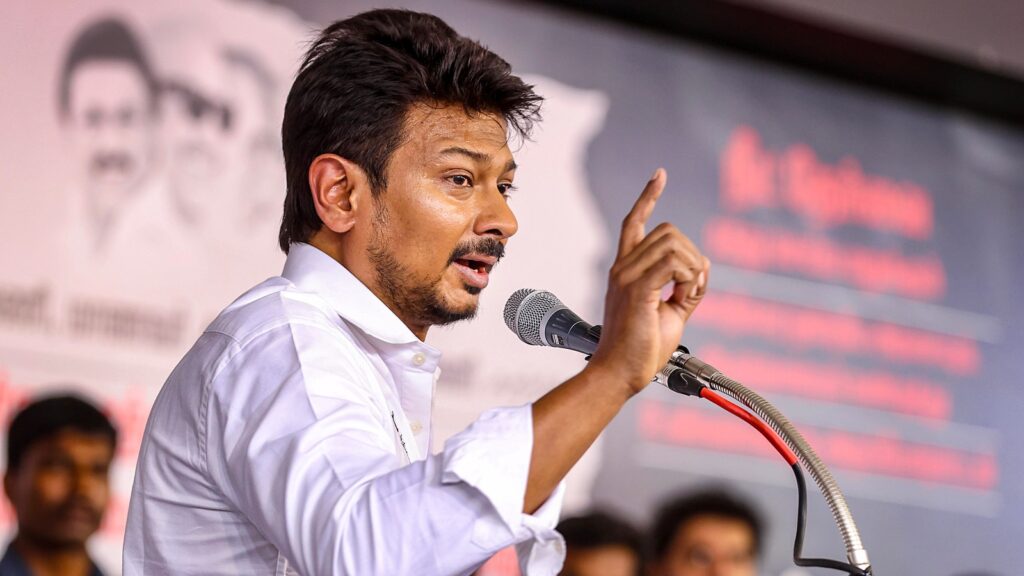That Dravidian politics had taken a sharper turn towards its founding principles was clear even during the 2019 Lok Sabha elections — in Dravida Munnetra Kazhagam (DMK) party chief MK Stalin’s utterances, even his candidate selection. Two years later, Stalin led the DMK to a win in the state elections and was named chief minister. And now, it is evident in Tamil Nadu minister (and Stalin’s son) Udhayanidhi Stalin’s comment targeting sanatana dharma.
It doesn’t matter how one defines sanatana dharma — the deeper spiritual essence or the more mundane ritualistic aspect — because the DMK, as indeed all Dravidian parties, are opposed to both (and to any other definition). Parties such as the DMK and the All India Anna Dravida Munnetra Kazhagam trace their lineage back to Periyar, the popular name of EV Ramasamy, the father of the Dravidian movement. Both remain, at least on paper, anti-caste and pro-women parties that emphasize social justice. Atheism and rationalism are part of their core principles — again, at least on paper. That caveat is important in both cases because after well over five decades of rule by either one of the two main Dravidian parties,
Tamil Nadu is not a casteless society (although it has achieved more in the realm of social justice than many other states). And over time, the emphasis on both atheism and rationalism in both parties has eroded — to such an extent that, at one time or the other, both the Dravidian parties have had no compunctions about partnering with the Bharatiya Janata Party (BJP), and to such an extent that many of today’s Dravidian leaders (and their families) have adopted highly ritualised religious practices of the sort that Periyar vehemently opposed.
It is also important to note that while Tamil Nadu’s social indicators are among the best in the country on account of welfare measures instituted by the two parties, the state’s politics is not immune to the malaises that afflict politics across India — structural corruption and nepotism. It isn’t clear whether a strident Periyarist anti-sanatana dharma call will work in the state now as well as it did in the 1960s and the 1970s, especially given the social and economic progress other backward classes (OBCs) in the state have seen, but what is clear is that the DMK has decided to take a harder stance on the issue.
Embrace independence with quality journalism
Save on HT + The Economist subscription


